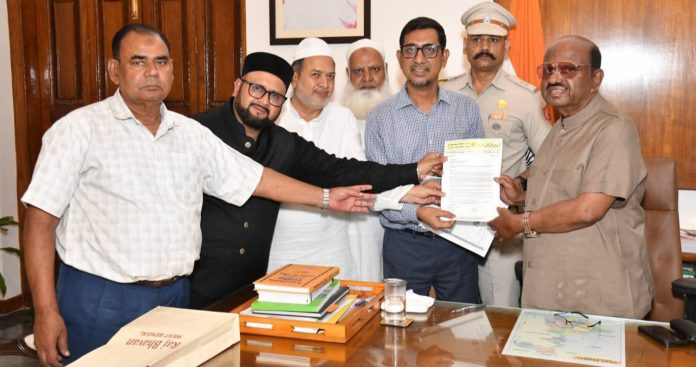– Mohd.Naushad Khan
A delegation from the All India Milli Council met Dr. C.V. Ananda Bose, Governor of West Bengal, to raise urgent concerns. They spoke about the harassment and discrimination faced by migrant workers from West Bengal in different parts of India.
The team included Mr. Shahood Alam, Mr. Rafay Siddiqui, Mr. Ghulam Muhammad, Mr. Qamruddin Mullick, and Mr. Sabir Ahamed. They reported serious violations of constitutional rights. Many Indian citizens, mostly from linguistic minority groups, are being wrongly identified as Bangladeshi nationals and deported from states outside West Bengal.
They said these actions violate human dignity and break fundamental rights under the Indian Constitution. This includes Article 14 (Right to Equality), Article 15 (Protection against Discrimination), and Article 19 (Freedom of Movement and Residence).
The delegation stressed that people are targeted only because of their language and culture. This has caused social alienation, harassment by authorities, and threats to citizenship. They said such acts are unacceptable in a democratic nation that stands for equality and justice.
They also raised concerns about the Election Commission of India’s Statewide Intensive Revision (SIR) of electoral rolls in West Bengal. This is being done before the upcoming Assembly elections. They warned that the rushed process could remove genuine voters, especially from marginalized and minority communities. This could harm the democratic process.
Governor Bose assured them he would write to the Hon’ble Home Minister of India. He would also direct authorities to investigate harassment claims. He promised to uphold constitutional values, protect dignity, ensure equal treatment for all citizens, and safeguard the electoral rights of West Bengal’s people.
The All India Milli Council hoped his action would bring quick and compassionate steps to protect migrant workers. They also hoped it would strengthen justice, equality, and fraternity.
This meeting was an important move to address the problems of linguistic minority communities and migrant workers in India. It reaffirmed the state’s commitment to constitutional protections and social harmony.




